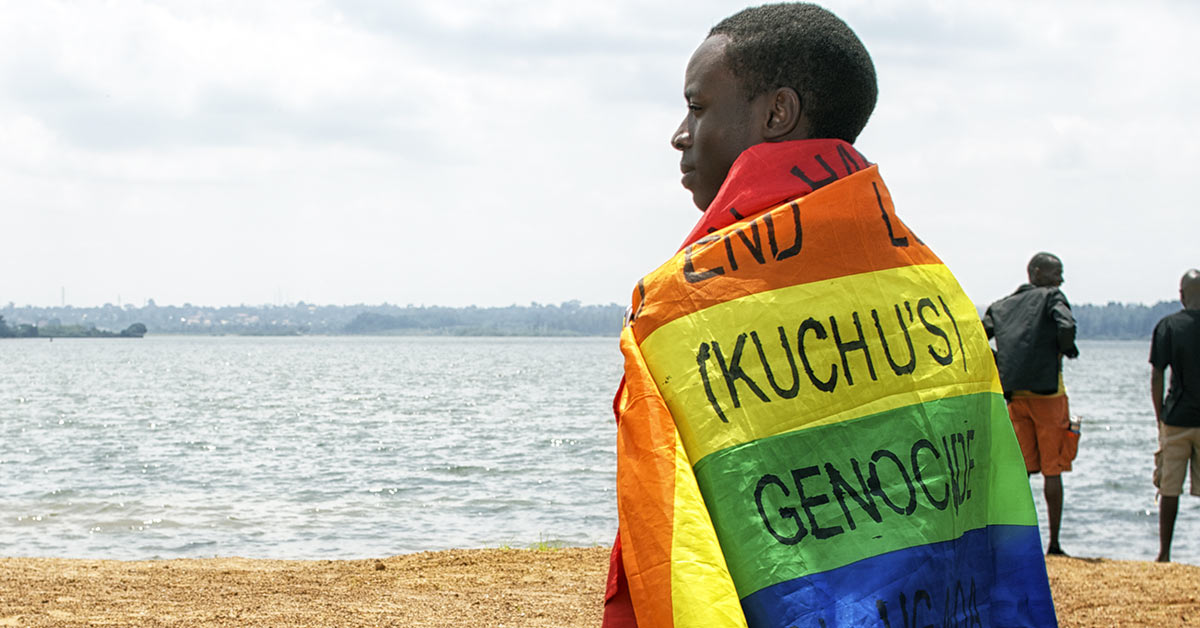Devastating impact of Uganda’s Anti-Homosexuality Act revealed

The Anti-Homosexuality Act has led to a massive escalation in abuses of LGBTIQ+ Ugandans (Photo: Iain Statham / Shutterstock)
The profound and harmful effects of Uganda’s Anti-Homosexuality Act have been laid bare in a new report, revealing more than 300 documented human rights violations and abuses against LGBTIQ+ individuals.
The report is a collaborative effort by the Strategic Response Team (SRT), a consortium of five organisations in Uganda that offer legal, safety, and support services to LGBTIQ+ people throughout the country.
“Our research clearly shows a massive escalation in serious abuses of LGBTIQ+ Ugandans who previously were working, caring for loved ones and living as productive citizens,” said Pepe Julian Onzeima, one of the report’s authors and leader of the SRT.
“Now many have been evicted, fired from their jobs, unable to access healthcare, all while facing increasing risks of arrest, mob justice and public humiliation simply for living their lives.”
The Anti-Homosexuality Act was signed by President Yoweri Museveni in May and is one of the most oppressive and severe anti-LGBTIQ+ laws in the world. In addition to several people being charged under the act, it has fueled a wave of discrimination and abuse.
The report documented, in the months that followed, 180 cases of housing evictions, 159 instances of discrimination, and 176 cases of torture and cruel, inhuman, and degrading treatment. Shockingly, at least 18 forced anal examinations were conducted under police orders.
Media outlets often sensationally reported cases involving suspected LGBTIQ+ individuals, contributing to an environment of discrimination and intolerance.
Survivors Speak Out
“Surviving a forced anal examination at police is something that lives with you forever,” said one survivor, “because of the way it is done, inviting other people to watch as they carry out the examination.”
The report, unsurprisingly, also found increasingly large numbers of reported mental health incidents among LGBTIQ+ Ugandans as well as school drop-outs and people choosing to flee Uganda to seek asylum elsewhere.
One clinic reported that over 70 percent of the LGBTIQ+ people that have sought services said they had experienced suicidal ideations in recent times.
One LGBTIQ+ person recounted their eviction and subsequent violence after being outed in the neighborhood, “My landlord received complaints from one of my neighbours, who then asked me to vacate the premises quickly. I was attacked and beaten by four unknown people; they stole all my belongings, including money, my phone and a copy of my keys.”
Another person shared, “The community chased me away from the village, and they poisoned my cow where I was doing my small business just because I have lived my whole life as a transman.”
At the same time, said the authors, politicians, including the Minister of Health, Minister of Education, and religious leaders continue to fuel the flames of discrimination adding to the physical and economic vulnerabilities of LGBTIQ+ Ugandans.
Said one Ugandan doctor, “The fear that LGBTIQ+ patients are living in now means that they aren’t even bothering to go to government health centers because the law clearly requires patients to be reported if they are suspected of being LGBTIQ+.”
A Call for International Action
The authors of the report stress that documenting rights abuses is challenging because survivors often fear reprisals. They urged international governments and funders to play a more active role in pressuring the Ugandan government to repeal the Anti-Homosexuality Act and ensure that their donor money aligns with their values and commitments.
Said Frank Mugisha of Sexual Minorities Uganda, one of the groups banned from operating in late 2022: “As other African countries consider similar laws that not only increase prison time for same-sex sexual conduct but criminalise legitimate human rights and public health work, it is more important than ever for international funders and businesses to actively defend the principles of non-discrimination and inclusive economic development in their words and actions.”
On October 2, Uganda’s Constitutional Court will begin preparations to hear several cases challenging the constitutionality of the Anti-Homosexuality Act. These cases were filed earlier this year, and a date for the Constitutional Court to open hearings will be scheduled.
Leave a Reply